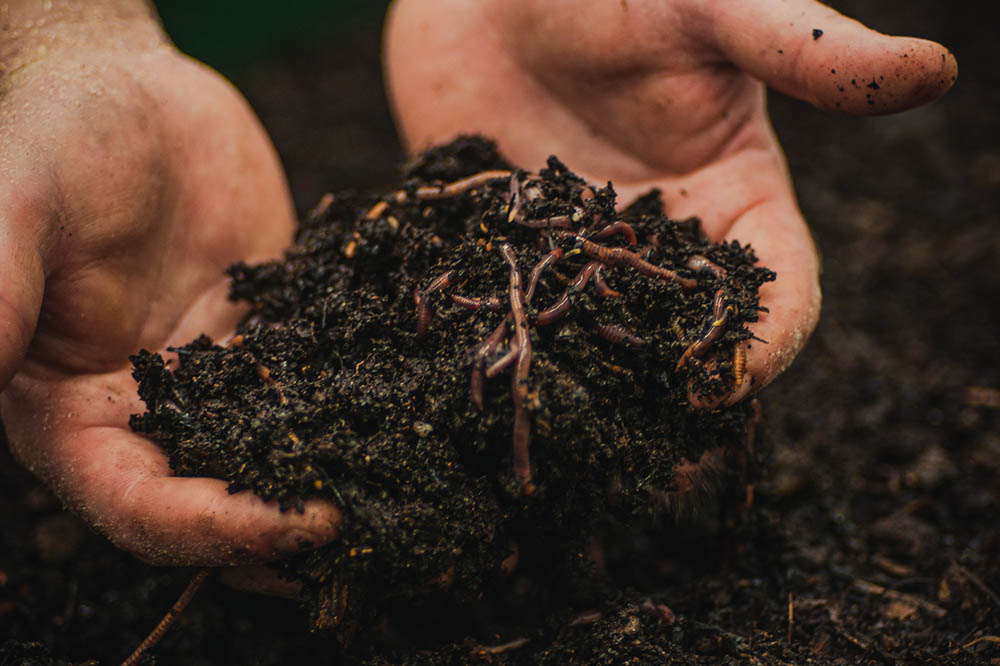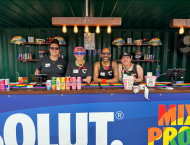Eat
 Photo courtesy of Pluvr Compost.
Photo courtesy of Pluvr Compost.
D.C. Restaurants Need Industrial Composting
October 30, 2020 @ 12:00pm
As sit-down restaurants like Equinox and Oyster Oyster pivoted to takeout methods during the Covid era, D.C. has seen an uptick in compostable dishes and silverware, something fast-casual restaurants like TaKorean implemented early on given their business model. But as much as we want compostable dishes to solve our waste problem, we must still think about what happens after we’re done eating.
Equinox adopted biodegradable containers in the effort to sustain pledges of zero-waste. Co-owner Ellen Kassoff scoured the Internet for the best options but knew she could only do so much.
“I cannot help what consumers do with their boxes when they get home,” Kassoff says. “All I can do is provide the materials for them to compost or recycle.”
Oyster Oyster, a zero-waste restaurant in the city, uses compostable take out containers made of sugarcane. This type is superior in breaking down after use, but not great for holding hot items.
Chef Rob Rubba says, “There are sacrifices to using this kind of packaging. We try to tell our guests that we’ll gladly take back anything that they’ve eaten out of and put it in our compost.”
TaKorean’s founder and CEO Mike Lenard felt that any extra cost for compostable containers was worth reducing unnecessary waste. But even with all these efforts, the city itself is not yet equipped with receptacles for compostable items; they go straight in the trash.
“These companies are all doing the best they can,” Lenard says, “but the infrastructure around composting needs to be much more vast.”
The ideal situation would be restaurants passing out compostable eatery and having compost bins that are then taken to an industrial composter, but we’re just not there yet. Though compostable materials do technically break down faster than plastics in the landfill, a larger industrial composter would create a cycle that creates no waste at all.
Composting is all about the closed loop process: food scraps go to compost bins where they break down to become nutritious soil, which then helps grow new food. But the compostable bowls and silverware are a different story – they’re not usually accepted at local farmer’s markets.
Pluvr Compost Cofounder Max van Praag says, “Those things are only compostable in certain types of composting.”
Which is where industrial composting – our missing link – comes in.
“The material that this compost ends up being is usable in your garden, but not to grow things that you’ll ingest,” he adds.
Phil Westcott, founder of Frederick, Maryland-based industrial composting plant Key City Compost, recommends restaurants start focusing on composting now as D.C. considers the necessary industrial closed-loop system.
“If there were to be an incentive on composting, then those restaurants that were keeping an eye on it – even if not fully implemented – are going to adjust quickly,” Westcott says. “Whereas if the market changed, and we were kind of forced to do this, the restaurants that have never looked into vendor relationships, or suppliers…it’s going to be more stressful for them.”
Setting D.C. up for a true closed loop cycle of composting – both industrial and organic – still feels far off. Like many issues in America, change rests on the people’s shoulders. Almost every interviewee recommended the same thing going forward: Use your voice.
“Awareness needs to start with the consumer,” Kassoff says. “If they request compostable packaging from their restaurants, you can bet people will change.”
“Restaurants have to make these changes to make it inconvenient, to get the dining public to see it,” Rubba adds. “[We]have to be willing to change and evolve.”
Westcott believes education on composting should start early, in schools. He echoes Kassoff.
“We need to ask questions. Ask a barista if their cup is compostable. And then ask if there is a composter that will collect the cup.”
And after the word is out, and our voices are loud, van Praag suggests a government incentive.
“If the D.C. government incentivized it through either making it illegal to throw away organic materials or making places for compostable items, it would be huge. They’d be saying, ‘Look. This is the future. This has to happen.’”
Follow Pluvr Compost on Instagram @pluvrcompost and visit Key City Compost at www.keycompost.com or on Twitter at @keycompost. Learn more about Equinox, Oyster Oyster and TaKorean below.
Equinox: 818 Connecticut Ave. NW, DC; www.equinoxrestaurant.com; @equinoxdc on Instagram
Oyster Oyster: 1440 8th St. NW, DC; www.oysteroysterdc.com; @oysteroysterdc on Instagram
TaKorean: 1819 7th St. NW, DC; 1212 4th St. SE, DC; and 1309 5th St. NE, DC; www.takorean.com; @takorean on Instagram
Enjoy this piece? Consider becoming a member for access to our premium digital content. Support local journalism and start your membership today.







